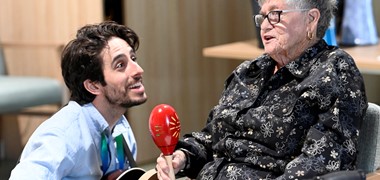What’s that acronym? Residential Aged Care edition – Part One

There are a lot of acronyms when it comes to residential aged care. And whilst they do their best to simplify complex names or concepts, people unfamiliar with the acronyms can find it confusing.
Here is part one of our quick reference guide to residential aged care acronyms.
DOH - Department of Health & Aged Care: The DOH develop and deliver policies and programs, and advise the Australian Government on health, aged care and sport. Their work ensures better health for all Australians.
DSS – Department of Social Services: The DSS is a department of the Government of Australia charged with the responsibility for national policies and programs that help deliver a strong and fair society for all Australians. The department develops and implements social policy.
BDF – Basic Daily Fee: The basic daily care fee is paid by all residents. It typically equates to 85% of the full single age pension. For more information on the BDF, check out our guide to residential aged care costs.
RAD – Refundable Accommodation Deposit: A RAD is a lump sum (one-off) payment made by a prospective resident as they enter residential aged care. Our guide on residential aged care costs has more information regarding RADs.
DAP – Daily Accommodation Payment: The DAP is calculated by converting the RAD into a daily charge and paid periodically. It also includes the Maximum Permissible Interest Rate (MPIR). Find out more about the DAP here.
MPIR – Maximum Permissible Interest Rate: The MPIR is a government-set interest rate used by residential aged care providers to calculate the DAP.
DAC – Daily Accommodation Contribution: Prospective residents with assets and income within a certain bracket will be asked to make a contribution to their accommodation. This is calculated by Centrelink. Check out our cheat sheet to the assessment thresholds here.
AS – Additional Services: Many residential aged care providers offer additional hotel-type services which attract a fee. These services are included as Additional Services. For more information on Additional Services, check out our guide.
TCP – Transitional Care Program: The TCP is designed to provide short term accommodation for older people straight after their discharge from hospital. Find out more about TCPs from our introduction to TCP.
ACAT – Aged Care Assessment Team: The ACAT assess older Australians to determine which care options will be suitable for them. This includes home care and residential care options. For more information on the ACAT, click here.


